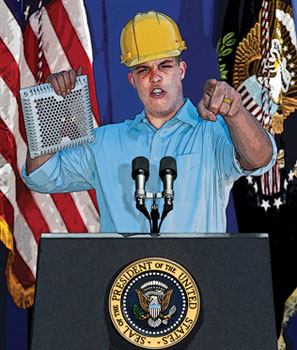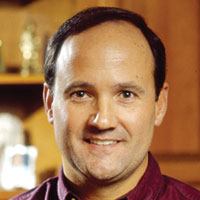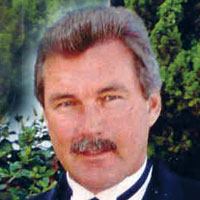NICK ORABOVIC
Just before Memorial Day weekend, the Consumer Product Safety Commission announced that approximately one million drain covers were being recalled.
The decision came after it was determined that certain models had been rated at a higher flow than they were capable of accommodating.
In a statement that sent shockwaves through the industry, CPSC officials recommended that any public pool subject to the recall should be closed until retrofits were made available.
For many, it was deja vu all over again — a bit too reminiscent of the mad rush to meet the December 2008 compliance deadline for the Virginia Graeme Baker Pool and Spa Safety Act.
But this was more like VGB-squared.
Pool operators once again found themselves debating whether to close certain facilities, only this time the decision had to be made in a matter of hours. And industry professionals once again scrambled to find compliant products, since manufacturers hadn’t been given a sufficient head start to come up with replacements.
But interestingly enough, many Top 50 Builders agree with the recall. “If the drain covers didn’t meet the standards, you have to [handle it]. You don’t have a choice,” says Keith Zars, manager of Keith Zars Pools, Ltd. in San Antonio.
However, most also believe the CPSC’s handling of the logistics left something to be desired. Here, a selection of the nation’s leading builders explain what they would have done differently had they been in charge.
Getting the word out
Some Top 50 Builders would have changed how information was released regarding the recall and the affected drains.
“It was very hard to ascertain exactly which drain covers were being recalled,” says Frank Fotia III, president/owner of Year Round Pool Co. in Hilton Head Island, S.C. “That could have been done a little more smoothly. We were getting information from the manufacturers as well as APSP and the CPSC, and not all the information was really coordinated.”
Others would have provided more facts about why the covers were being recalled. While CPSC officials said the drain covers had been improperly tested and were therefore subject to inaccurate flow ratings, some wanted to know by how much. Asked one builder: What if the testing was only off by a few gallons per minute and some pools’ circulation systems still fall within the drain cover’s capability?
“You’d still have to replace the cover,” says Bruce Dunn, president of Mission Pools in Escondido, Calif. “I wouldn’t say you’re allowed to use the cover ad infinitum. But the owner of that hotel who had to decide whether to expose their company to the potential of a public safety hazard, to keep the pool open or shut it down, they had to make a decision from only a small base of fact. If the immediacy of taking [the drain covers] out is being driven by flow rate, with safety being the No. 1 issue, then [tell us] what is the approved flow rate on the cover you have in there.”
Such information would have added more credibility, builders claim. Many believe the covers that were initially installed to comply with VGB — even those that have been recalled — are among the safest ever produced. So it’s hard for them to agree that the situation was as urgent as portrayed.
“Nobody has shown these to be unsafe,” says Mike Geremia, president of Geremia Pools in Sacramento, Calif. “They are going based on hypotheticals. If you’re going to do something like this, you’d really better study it instead of just getting pushed into a corner and saying, ‘Well, this is the best solution we could come up with.’ How many accidents have there been with [these covers]? Show me some real hard data out there that the ones that are in the field are unsafe.”
Brass tacks
Some builders also would have changed certain stipulations in the recall.
While about a million of the covers were produced, only those in shallow-water vessels, spas and some single-drain environments actually needed replacement, a requirement that caused confusion.
“I can see health departments understanding, but now we’ve got customers with dual drains saying, ‘You’ve got to change out my drains. They’re recalled,’” Geremia says.
Many builders believe dual-drain pools and spas have demonstrated their safety over the decades. Geremia, for one, also would have exempted shallow-water pools with dual drains. “I’d say all split-drain covers are fine,” he says. “They can’t even show us accidents pre-VGB where split-drain covers were a problem.”
In fact, Geremia says he would have allowed all recalled covers that had already been installed to remain in place. Clear those still in circulation off the shelves, he adds, but don’t force proprietors and their hired professionals to undo the good-faith work that was accomplished to comply with VGB.
“The existing covers have to be changed out in the next five years, or however long the manufacturer has it set to expire,” Geremia says. “Go ahead and make the manufacturers retest their drains. If they think that’s going to really improve safety, then let’s move forward. But to go out and replace all these others? I’m not sure that’s the best way to spend this money.”
In addition to implementation, some took issue with who must bear the burden and who has been held accountable. Many of the builders sympathized with all parties involved, particularly the manufacturers who had to retest their equipment and ultimately replace it. Some even understood the CPSC’s situation, and believed the agency to be caught in a no-win scenario due to political pressure to act. But many wondered why the third-party testing laboratories that assessed the drain covers’ flow ratings weren’t punished.
“I would put a penalty on the testing labs for causing all this commotion,” Zars says. “It seems like they’re the ones that didn’t do their job.”
Lost perspective
More than anything, the Top 50 Builders we interviewed believe the drain-cover recall reflects an exaggerated focus and emphasis on suction outlet covers.
“There will never be a cover designed by any manufacturer in my lifetime that addresses 100 percent of entrapment issues,” says Michael Giovanone, owner of Concord Pools & Spas in Latham, N.Y. “It is humanly impossible. You can’t cover all the variables, so you have to build for the rule, not the exception.”
They also believe agencies should pay closer attention to how these pools are constructed, rather than focusing solely on drain covers and testing labs. “The fact that this is all about drain covers is just ridiculous,” says Steve Rondeau, president of Rondo Pools in Phoenix. “A drain cover is only good if it’s installed properly. There are no instructions on the installation process, no inspections on the sumps — no enforcement on the installation side. It’s only on the manufacturer side. A world-class main drain is only as good as I install it.”
And what about those who never complied with VGB in the first place? Government entities like the CPSC should be more focused on the fact that single-drain systems are still accepted in certain municipalities, Rondeau believes.
“There’s no testing in the field,” he says. “Inspectors and plan reviewers aren’t looking for [split drains]. There’s no enforcement in the actual practical application of these things.”
This also brings Top 50 Builders back to the subject of dual drains. These contractors have so much faith in multi-drain systems that they believe all pools should be required to have them, even in residential settings. Currently, backyard pools and spas aren’t covered under VGB, other than to say that all new drain covers must be approved.
“Multiple drains are a must, regardless of the type of cover,” Giovanone says.
Looking back
When Top 50 Builders voice opinions on what should have happened differently regarding drain covers, they speak of turning the clock all the way back to 2007, when the VGB Act was making its way through Congress.
The law was passed at the end of that year, and it allowed 12 months for all commercial pools to have their covers replaced. However, there wasn’t enough product available at the time that met the specifications, which were still being fine-tuned during the law’s passage. That original time frame for VGB compliance was the start of many problems, industry members believe.
“I think the old adage of measure twice, cut once comes into play,” Rondeau says. “I would have slowed the process down and had testing criteria that were unambiguous and couldn’t be misinterpreted.”
What Would You Do If You Were President?
Robert Guarino
South Shore Gunite Pools & Spas
Chelmsford, Mass.
I would initiate a policy whereby if a candidate could not keep a campaign promise, that would be grounds for dismissal. I would also stop the Federal Reserve from charging us interest for printing our money. They are not part of the federal government. The final, and most important, thing I would do is to pay down the national debt. The interest alone could provide cradle-to-grave health insurance for every American man, woman and child.
Ron Robertson
Robertson Pools
Coppell, Texas
One of my big concerns is aid for small businesses. Today, if you want a small business loan, you have to not need it. Plus, I would quit putting so much emphasis on corporate government bailouts and instead focus on the guy that hires between 10 and 100 people.
BruceDunn
Mission Pools
Escondido, Calif.
I’d institute a tax overhaul. The system should be set up to incentivize hard work. Today, if you make more, you pay more. When I went to college, they said people who got into business created value, so you earned more. That people who make over $250,000 should be penalized is wrong. I’ll bet those people are employing or managing people, or making taxable money for their employers.
Michael Giovanone
Concord Pools & Spas
Latham, N.Y.
I’d deregulate small business, take the handcuffs off and give them more incentives to expand and employ. You have to take the restrictions and heavy taxation away — unemployment, health insurance and OSHA regulations, among others. Small business is the backbone of America, and the government should just let us do what we know how to do. Then we’ll employ more people, buy more equipment, and stimulate the economy.
MichaelShammas
Aegean Pools
Chesapeake, Va.
I’d like to see term limits in all elected public offices, with one 6-year term for the president. The way it is now, they waste 4 years trying to get re-elected. I would also hold politicians on all levels to what they promise. Lying to the people should be a punishable offense. In fact, people that hold public office should face stiffer penalties, not the other way around. … And I would definitely pass a bill to bail out the pool industry. We’re too much fun to fail!
Keith Zars
Keith Zars Pools
San Antonio
I don’t think people should have to pay a tax to provide jobs — the payroll tax. Those are the things that keep you from going out and eating. And if you don’t go out and eat, then the guy who worked in the restaurant stays home. We have to get these people back to work.
Frank Fotia III
Year Round Pool Co.
Hilton Head Island, S.C.
I would push to get off the dependency on foreign oil by using natural gas to run all our trucks. There’s been a lot of drilling going on, and we can tap our own natural resource, put an awful lot of people to work, and keep all the money here, instead of sending it overseas.
Tony Schiavone
Seasonal World
Clarksburg, N.J.
[Our platform] would be the reform and restructuring of local government. In our area, the sheer cost and overall permitting process stops many buyers from pursuing home-improvement projects. This not only affects Seasonal World, but other noncompeting businesses. In turn, this has a negative effect on the local and national economy.
John Tortorella
J. Tortorella Swimming Pools
Southampton, N.Y. I think we should stop regulating small local banks so much — the local banks didn’t create the economic problems, it was the mortgage brokers and the big banks. When you tie up these local banks, there’s no room for expansion. Also, we should reduce big government. There are too many layers. We’re giving all this money to overseas countries (especially Third-world countries) so we can use them as puppets. We funnel all kinds of legal and illegal money to them. We should take that money and use it domestically.
-
MORE INFORMATION
Top 50 Builders Chart (PDF)
See the firms who made it on the list this year.
- What Would You Do:Economy
Some of the nation’s top pool builders explain how they’d turn around the country’s financial fortunes.
- What Would You Do: Immigration
How undocumented immigrants should be treated remains a hotly debated topic.













